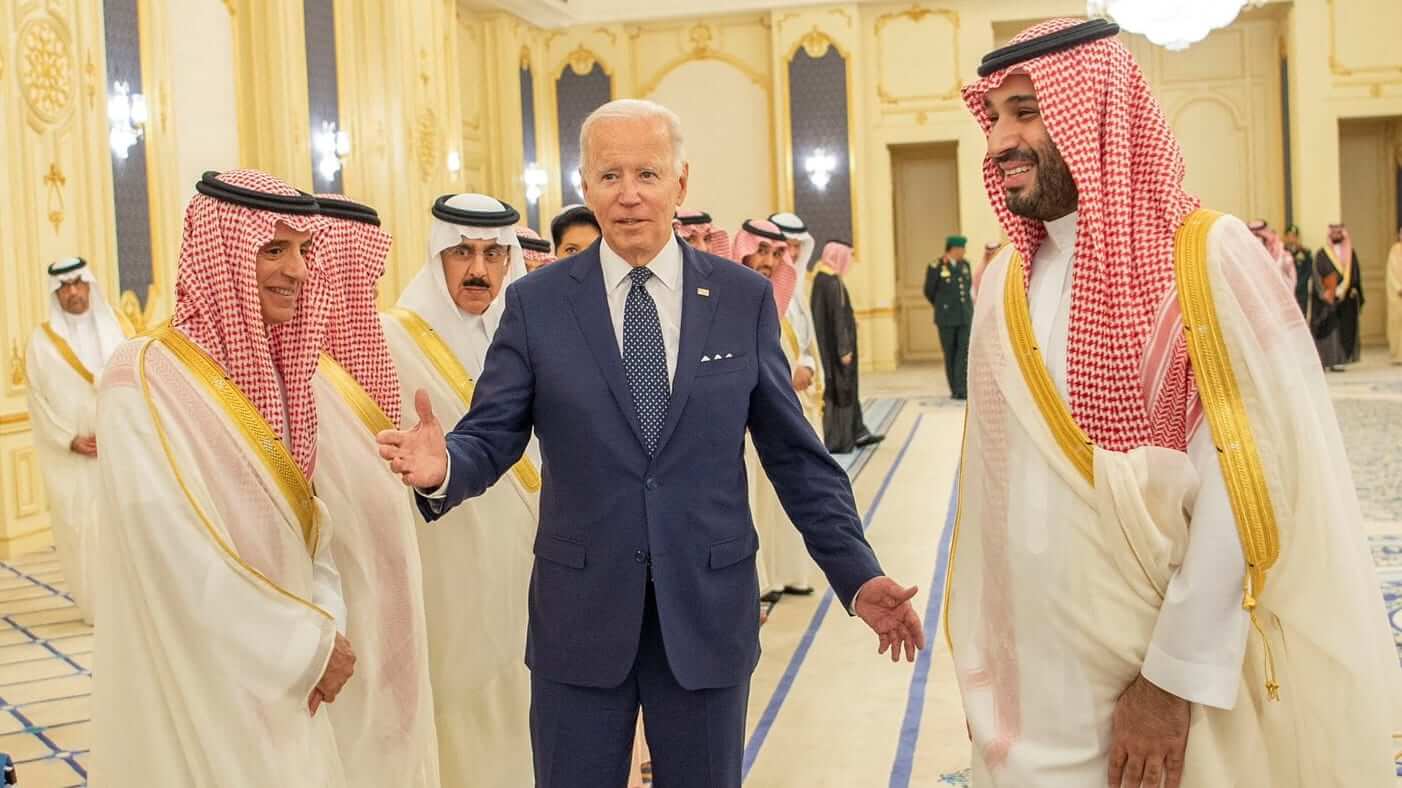The United States (US) has said it is “re-evaluating” ties with Saudi Arabia and its reliability as an ally after Saudi-led OPEC+’s decision to cut oil production by two million barrels per day, a move Washington says will hurt the global energy market by raising oil and gas prices and of effectively allow the Kremlin to fund its war in Ukraine.
Top officials in the Biden administration and Democratic lawmakers have demanded that Washington end all cooperation with Riyadh in critical areas, including halting all weapons supplies and withdrawing US troops. Some officials have even called on Congress to pass the ‘No Oil Producing and Exporting Cartels’ (NOPEC) bill, which would allow the US to bring anti-trust lawsuits against countries engaging in oil price fixing and anti-competitive behaviour.
While Washington’s outrage against Riyadh was a predictable outcome of the oil cartel’s controversial decision, the Biden administration is unlikely to shun the Kingdom.
Halting weapons sales might temporarily deprive Saudi Arabia—the largest importer of US arms—of the ability to defend itself against Houthi attacks and other regional threats. However, in the long term, the Kingdom could gravitate closer to US rivals, including China and Russia, eroding the US’ already dwindling influence in the Middle East. Of particular concern for the US is China’s growing military ties with Saudi Arabia, especially in the field of ballistic missile development.
Similarly, withdrawing American troops stationed in the Kingdom would impair Washington’s ability to promote regional energy security. According to Saudi analyst Ali Shihabi, the primary reason for US military presence in the Middle East is “to protect the free flow of oil and gas” in the region. He argues that this gives it the ability to secure energy transport through the Gulf and gives it leverage over countries like China that depend on oil and gas from the region. Shihabi further notes that by withdrawing troops, the US would create a “security vacuum,” increasing the risk of threats to regional security and allowing Beijing and other rivals to replace it.
Also read: Despite Efforts to Placate Saudi Arabia, Biden Can’t Reverse the Damage He Has Done
Aside from suspending arms sales and withdrawing troops, several US politicians have argued that passing the NOPEC bill would be the best way to retaliate against Saudi Arabia, saying it would allow the US to revoke the sovereign immunity granted to OPEC and outlaw the practice of artificially fixing oil and gas prices.
However, according to the US Chamber of Commerce, NOPEC would have “zero impact in taming gasoline prices and could perversely cause prices to rise due to the geopolitical risk that comes with this legislation.” It claims that passing the bill would invite reciprocal sanctions and lawsuits against US companies and possibly the US military. In fact, Saudi Arabia warned after NOPEC was first proposed in 2019 that it would respond by selling oil in currencies other than the dollar, a move that would dent the dollar’s hegemony in the global petroleum market.
Even though energy plays a significant role in the US-Saudi alliance, it is not the only area of convergence. Washington and Riyadh also cooperate extensively in the field of counterterrorism. To this end, the State Department describes the Kingdom as a “vital partner,” noting that it was a founding member of the ‘Global Coalition to Defeat ISIS’ and has foiled numerous terrorist threats directed against the US. F
Furthermore, Riyadh wields tremendous influence in the region and is considered the de-facto leader of the Arab world and regional organisations like the Gulf Cooperation Council (GCC) and the Arab League. Cutting ties with Saudi Arabia could, therefore, have a calamitous cascading effect across the Gulf. In fact, the US’ allies in the Gulf, including Bahrain, Egypt, and the United Arab Emirates, have all rejected the US criticism of OPEC+’s decision and sided with Saudi Arabia.
Finally, history shows that such pressure tactics more than likely destined to fail. For instance, immediately after assuming office in January 2021, President Joe Biden officially blamed Saudi Crown Prince Mohammed bin Salman (MBS) for orchestrating journalist Jamal Khashoggi’s murder and imposed sanctions on security officials and halted arms transfers over human rights violations by Saudi forces in Yemen.
These actions ultimately failed to change MBS’ behaviour, forcing the US to ease its pressure campaign in return for increasing oil production. Biden even travelled to Jeddah in July and met with the Crown Prince to encourage the Kingdom to ramp up oil production in a bid to tame rising oil prices. MBS, however, has turned his back on Biden so far, with the Kingdom taking various steps to undermine Washington’s interests. Apart from the OPEC+ production cut, Saudi Arabia has also threatened to end the dollar-denominated oil transaction with China and accept the yuan.
All things considered, the US cannot afford to take drastic measures against Saudi Arabia. The costs of dismantling ties with the Kingdom are greater that any benefits such a move might offer. Washington must thus tread carefully and weigh its options before making any move, as it risks losing a long-time ally as well as its hard-earned regional clout.

